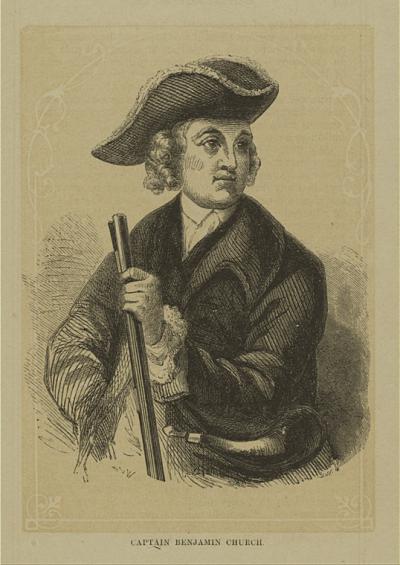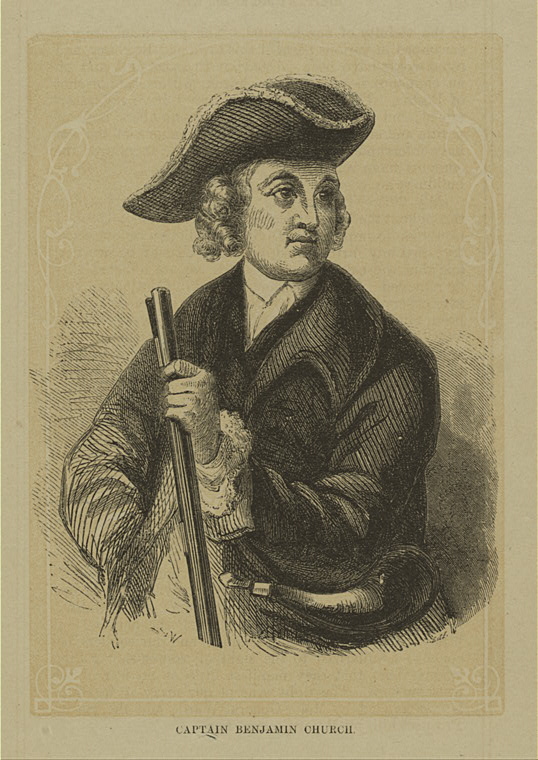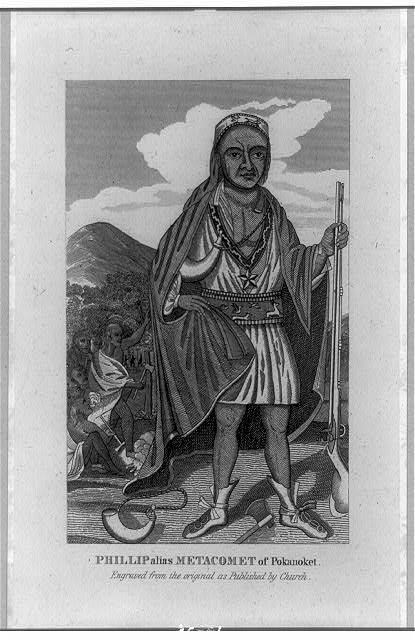Rochester family linked to colonial captain
A magazine article by Mike McCue linked him to Rochester long before he was hired as town administrator last summer.
In 2002, McCue’s article, “The Soldier and the ‘King,’” appeared in American History magazine. The article chronicled King Philip's War, which was fought between colonists and Native Americans starting in 1675.
A Mansfield resident, McCue recently learned one person he wrote about, Capt. Benjamin Church, has direct decedents living in Rochester.
“When I first started working for Rochester last summer, Mr. George Church passed away,” McCue said. “I was informed he was a direct descendent of the subject of my article…So I had a connection to Rochester even before I worked here.”
On April 15, he spoke at the Rochester Historical Society about the article.
As a soldier and leader, Capt. Church fought in several key battles. He was also part of the ambush party that killed Wampanoag leader Metacomet, known to colonists as King Philip. The ambush ended the war in southern New England.
History has always fascinated McCue. In 1989, he earned a bachelor’s degree in the subject and then delved into his own family tree.
“I decided to research a family legend that my grandfather would tell claiming we were direct descendents of John Alden of the Mayflower,” he said. “My grandfather was both wrong and right.”
McCue’s ancestor wasn’t John Alden, but instead fellow Mayflower passenger William Brewster.
While websites such as Ancestry.com now make it easy for anyone to become an armchair genealogist, McCue said his research was done the old-fashioned way.
He wrote letters, combed libraries and trudged through cemeteries for information.
His search uncovered another Rochester connection.
“Oddly enough this research seems to have led the way to Fred Underhill and I discovering we are related, albeit ninth cousins, once removed,” McCue said.
Underhill chairs the town’s water commission chair and serves on the historic commission.
McCue has penned a dozen magazine articles, mostly on American and Canadian events before the Revolutionary War.
Writing for magazines was a way for McCue to keep at his craft after two attempted novels.
Based on the Troubles in Northern Ireland and the Cold War, the books were two-thirds complete when those events ended.
Discouraged by modern history, McCue focused on the past.
Writing is something of a pastime in his family. His grandfather (the one who told the Mayflower story) produced the first “Cape Cod Magazine” in the 1950s. He also wrote novels based on Cape Cod.
“So I guess I have writing in my blood,” McCue said.
McCue’s interest in King Philip’s War started when he lived across the street from the Woodcock Garrison and cemetery in North Attleboro. In 1676, Wampanoag Indians killed Nathaniel Woodcock at the site.
McCue said Capt. Church, born in Plymouth, was keen to learn the battle tactics employed by the Wampanoags. Capt. Church’s techniques laid the groundwork for a different style of warfare, and he is credited as the father of the United States Rangers.
“Church was probably the worst opponent the Indians could have as he appreciated and learned their ways,” McCue said.
King Philip’s forces had several victories early on the war. Dartmouth was nearly destroyed and raids occurred near Boston and within Plymouth.
“A merchant of the day wrote that unless the tide changed: ‘these colonies will soon be ruined,” McCue said.
Capt. Church convinced neighboring tribes to join his side. Near the war’s end, King Philip was trapped near Mount Hope, Rhode Island.
During an ambush the chief was shot and killed. Church had the body drawn and quartered. For 20 years, King Philip’s head sat on a pike outside of Plymouth as a gruesome testament to a war that killed approximately 3,000 Native Americans and 600 colonists.
Capt. Church went on to fight in Canada during the French and Indian Wars. His reputation was tarnished when men under his command clubbed several French prisoners to death.
He retired soon after. In 1719, Capt. Church died after a riding accident.
McCue said Capt. Church’s son revived his father’s reputation by publishing his memoirs “Entertaining Passages Relating to Philip’s War which Began in the Month of June 1675.”
The book is considered America’s first military manual.
Church’s 1992 induction into the U.S. Army Ranger Hall of Fame further strengthened his legacy.














